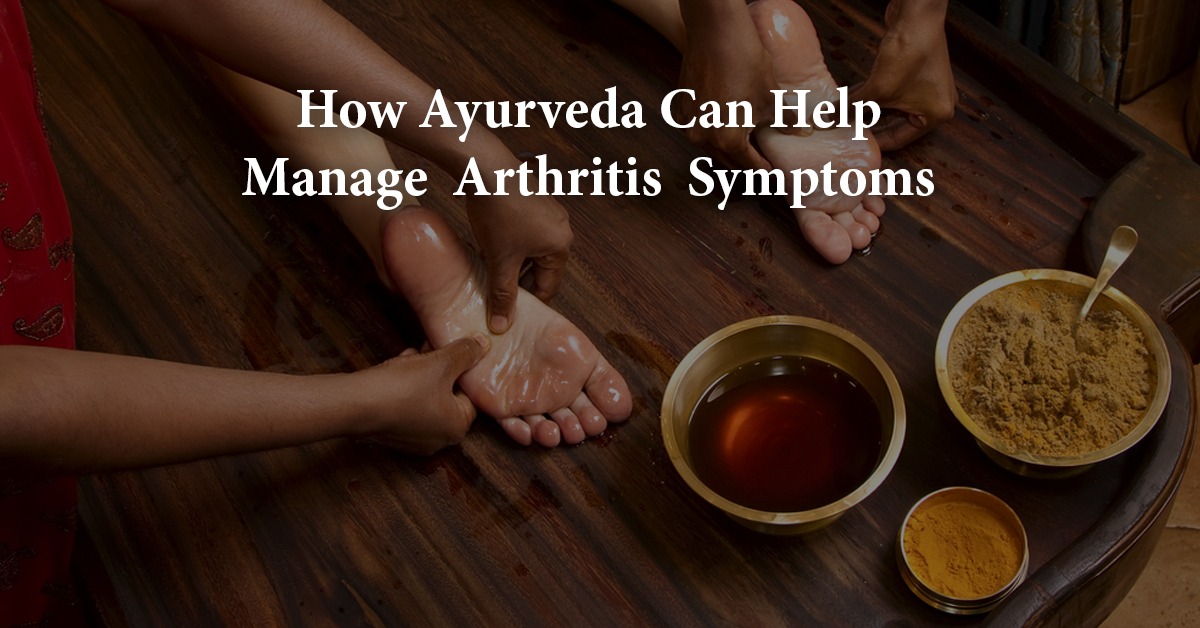Daily Ayurvedic Practices to Manage Rheumatoid Arthritis
Rheumatoid arthritis (RA) can be a crippling illness that affects the joints and causes pain,stiffness, and inflammation. Even though traditional medicine provides treatment alternatives,many people want to manage their RA in a more all-encompassing way. The age-old Indian medical system known as Ayurvedic medicines in Kerala offers a plethora of techniques that can successfully enhance your current course of treatment and advance your general well-being.
Rheumatoid arthritis (RA) is considered by the ancient Indian medical system Ayurveda to be the result of an imbalance in the doshas, or the forces that control our body and mind, related Vata dosha is frequently worsened in RA, resulting in joint discomfort, stiffness, and dryness. Ama, a build-up of waste materials and undigested food, can impede recovery and exacerbate inflammation.
Essentially, what Ayurveda perceives as RA is caused by an imbalance of the Vata dosha and the accumulation of ama, which upsets the body's normal balance. Ayurveda seeks to heal and restore balance by treating these imbalances with herbal treatments, dietary changes, and lifestyle modifications.
Daily Routines for Doshic Equilibrium
To help you manage RA and encourage bodily harmony, try incorporating these daily Ayurvedic activities into your routine:
Dinacharya (Day-to-Day Schedule): In Ayurveda, the establishment of a consistent daily regimen is essential. Your body can automatically align with the rhythms of nature if you wake up early enough to witness the sunrise. Get into bed early, ideally before 10 p.m., to guarantee that you get the rest and renewal you need.
Digestive Fire, Agni: Food digestion and toxin removal depend on a robust Agni. Begin your day with a glass of warm water flavored with ginger or lemon to arouse Agni. Eat at regular intervals throughout the day, focusing on easily digestible, warm, prepared foods. Steer clear of refined carbs, processed foods, and foods with high sugar content
Nutritional Decisions: Adopt a warm, grounded, and moist diet that will balance your energy. Make sure to include lots of cooked veggies, such as sweet potatoes, spinach, and broccoli. Choose grains that are simple to digest, such as oats, quinoa, and basmati rice. Stems and soups are great options because they are filling and hydrating. You can use a lot of spices, such as fenugreek, cumin, ginger, and turmeric, in your meals because they have anti-inflammatory qualities. Drink warm water or herbal teas to stay hydrated all day long.
Abhyanga Self-Massage: Self-massage daily using Warm sesame oil has been shown to greatly enhance relaxation, lessen stiffness, and increase circulation. Concentrate on your joints and sore spots while utilizing soft circular motions. Sesame oil nourishes the skin and naturally balances the Vata dot.
Pranayama and yoga: Yoga poses can lessen discomfort, increase flexibility, and strengthen the muscles surrounding the joints. For RA, gentle stretches and restorative yoga positions are especially helpful. Yoga breathing techniques called pranayama can help reduce stress, which is a major cause of inflammation.
Meditation: The psychological effects of persistent pain and discomfort can be detrimental.Techniques for meditation, such as mindfulness meditation, can help reduce stress and anxiety as well as enhance the quality of sleep. Your general well-being can be greatly improved by setting aside even a short amount of time each day to concentrate on your breathing and clear your mind.
Extra Ayurvedic Therapies: A certified Ayurvedic practitioner might suggest other therapies to meet your unique needs, even if the aforementioned techniques are simple to implement into your daily routine.
These could consist of:
Panchakarma: To get rid of ama and bring the body back into balance, this rigorous detoxification method uses a variety of medicinal techniques like purgation and vamana (emesis).
Shirodhara: This soothing treatment entails continuously applying a stream of warm, medicinal oil to the forehead. It can be quite helpful in easing headaches, reducing tension, and encouraging sleep.
Herbal Treatments::Boswellia, guggulu, and ashwagandha are a few Ayurvedic medicines that may be useful in reducing RA-related pain and inflammation. But, to find the right amount and mix of herbs for your unique needs, speak with a licensed Ayurvedic physician.
Recall that Ayurveda promotes a holistic approach to treatment. These daily routine routines will help you lay the groundwork for controlling your RA and fostering general well-being. Before beginning any new treatment plan, including Ayurvedic therapies or herbal remedies, always get your doctor's approval.
We at Fair Pharma are aware of the complex aspects of arthritis. Our team therefore uses more than just medication, the holistic approach allows us to address not just the symptoms, but also your overall well-being.

